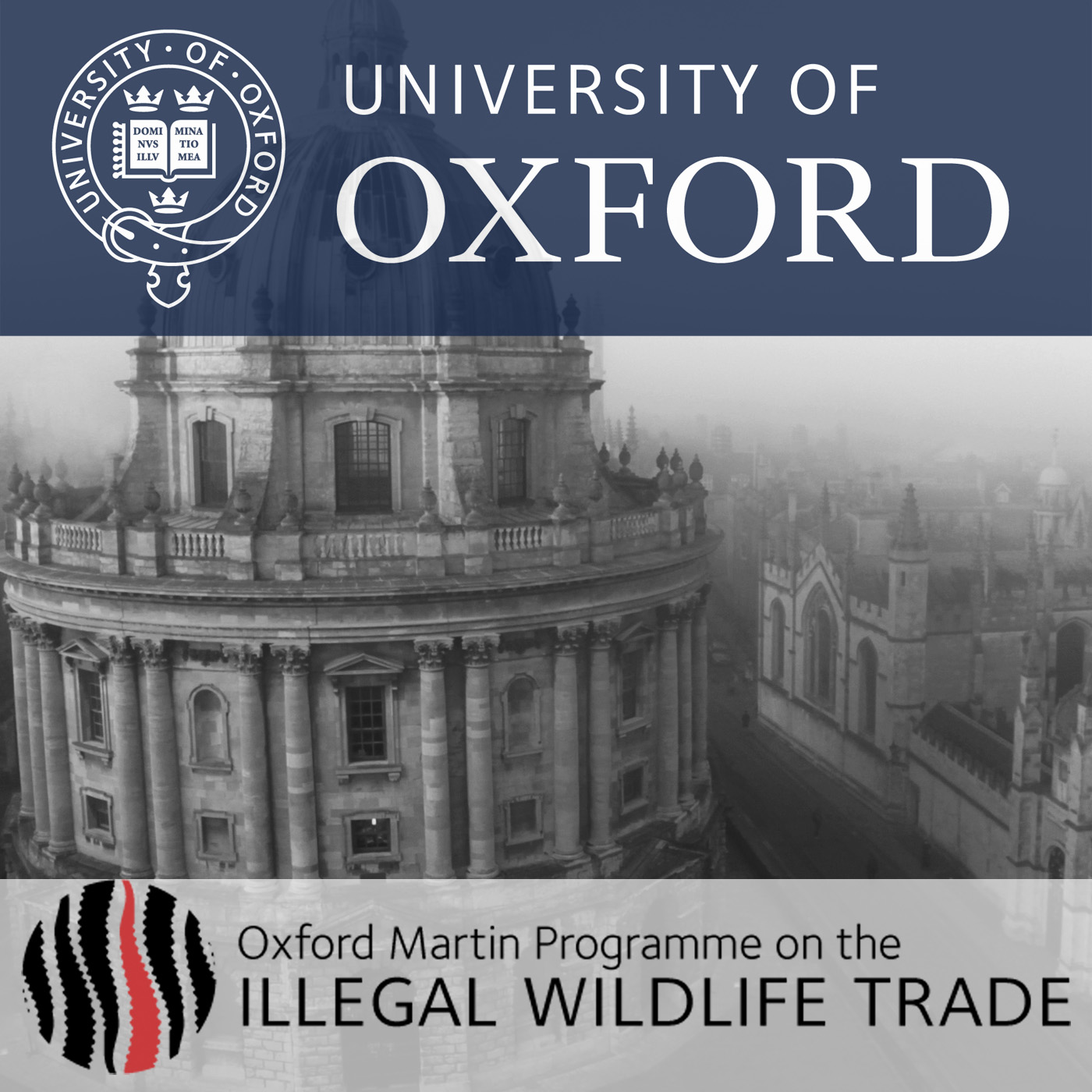Episodes
Discussion and conclusions from the symposium, with, Ming Lee, Principal Investigator, Sun Yat-sen University, Wildlife trade issues in China and Southeast Asia, Bob Smith,Director, Durrell Institute of Conservation and Ecology (DICE), Naomi Doak, Head of Conservation Programmes, The Royal Foundation, E.J. Milner-Gulland, Tasso Leventis Professor of Biodiversity, Oxford University, and Rosaleen Duffy, Professor, University of Sheffield
Published 11/28/17
Panel discussion on theme 3 of the symposium. With Deborah Hembury, Rachel Ash, Foreign and Commonwealth Office, Lixin Huang, American College of Traditional Chinese Medicine, Anastasiya Timoshyna, Programme Leader, Medicinal Plants, TRAFFIC.
Published 11/28/17
Lixin Huang, American College of Traditional Chinese Medicine, givesa talk for the symposium on traditional Chinese medicine and common misconceptions about it. Traditional Chinese Medicine (TCM) is an ancient and profound healing art that originated more than 3,000 years ago. It comprises a number of therapeutic practices, among them Chinese acupuncture, herbology, nutrition, Taiji Quan and Qigong. All have long proven efficacy in treating a wide range of disease conditions. At the core of...
Published 11/28/17
Anastasiya Timoshyna, Programme Leader, Medicinal Plants, TRAFFIC, gives a talk for the symposium on her research on sustainable wildlife trade. Wild plants are used in products consumed daily around the world, including food, medicines and cosmetics, often as ‘hidden ingredients’ that consumers and companies are unaware of due to the complexity of trade chains. This trade contributes to the livelihoods of millions of people, but many of the plant species used are under pressure from...
Published 11/28/17
Panel discussion looking at theme 2 of the symposium. With Professor David Macdonald, founding Director of the Wildlife Conservation Research Unit (WildCRU), Hollie Booth, Sharks and Rays Advisor, SE Asia Archipelago, WCS Indonesia, Michael ‘t Sas-Rolfes, fellow of the Oxford Martin Programme on Illegal Wildlife Trade, and P Siriwat, Oxford Brookes University
Published 11/28/17
Panel discussion looking at the first theme's panel. With Kelly Malsch, Head of Species Programme, UNEP WCMC, Steven Broad, Executive Director, TRAFFIC, Elizabeth Davis and Joss Wright, Senior Research Fellow, Oxford Internet Institute, Oxford University.
Published 11/28/17
Michael 't Sas-Rolfes, fellow of the Oxford Martin Programme on Illegal Wildlife Trade, gives a talk for the symposium on his research on South Africa's lion trade. Worldwide, wild populations of large felids are threatened by various factors, including harvesting for illegal wildlife trade. For certain species, such as the African lion, some legal harvesting and trade also takes place. Several African countries allow regulated commercial trophy hunting and South Africa allows the sale and...
Published 11/28/17
Hollie Booth, Sharks and Rays Advisor, SE Asia Archipelago, WCS Indonesia, gives a talk for the symposium on her research in Indonesia and the overexploitation of sharks. With rapid global expansion of fishing and trade in recent decades, coupled with conservative life history strategies making them particularly vulnerable to overfishing, sharks and rays are now one of the most threatened species groups in the world. Indonesia is at the heart of the coral triangle: the global centre of...
Published 11/28/17
Joss Wright, Senior Research Fellow, Oxford Internet Institute, University of Oxford, gives a talk for the symposium on mapping the online illegal wildlife trade. The internet’s role as a platform for communication and commerce brings with it the potential for a range of criminal applications. As trade and payment systems have moved online, so have the means to advertise, discover, buy, and sell illicit products. In this talk, we will discuss the extent to which the illegal wildlife trade has...
Published 11/28/17
Elizabeth Davies gives a talk for the symposium exploring cultural values and preferences surrounding the illegal wildlife trade. Qualitative anthropological methods enable open-ended exploration of cultural values and preferences of wildlife products. Ranging from guided walks to key informant in-depth interviews and participant observation, qualitative methods compliment standardised and quantitative approaches to better understand complex human motivations and preferences for multiple...
Published 11/28/17
Steven Broad Executive Director, TRAFFIC, gives a talk for the symposium on creating and catalysing social and behavioural change. In recent years, there has been increasing recognition of the value of applying behavioural science for conservation goals. Approaches from fields such as social marketing, Social and Behavioural Change Communications (SBCC) and behavioural economics, are now being considered alongside those from private sector media, marketing and advertising, as valid tactics...
Published 11/27/17
Kelly Malsch, Head of Species Programme at UNEP-WCMC introduces herself as the moderator for the first theme of the day, Diverse approaches to illegal wildlife trade research, as well as the speakers who will present.
Published 11/27/17
E.J. Milner-Gulland, Co-Director of Oxford Martin Programme on the Illegal Wildlife Trade welcomes delegates to the programme's first symposium, co-hosted by San Diego Zoo Global and TRAFFIC. Introduction to Open Space: Jenny Glikman
Open Space is a convening facilitation process to create dialogue and bring together people with common interests, questions, ideas etc. Throughout the symposium, there will be 3 different areas designated for Open Space, each based on a different component or...
Published 11/27/17


